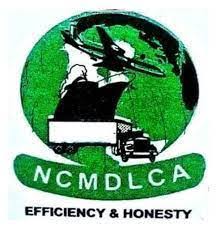
Adopt Ghana’s Customs Financing Model to Reduce Port Costs, Increase Transparency, Group Tells Tinubu

The National Council of Managing Directors of Licensed Customs Agents (NCMDLCA) has urged the Federal Government to adopt Ghana’s customs financing framework for the Nigeria Customs Service (NCS), saying it offers a more transparent, accountable, and cost-efficient system.
In a letter to President Bola Tinubu, signed by its National President, Lucky Amiwero, the group said Ghana’s model ensures that charges are tied directly to service delivery, simplifies accountability, and prevents arbitrary cost escalation.
According to NCMDLCA, Ghana’s Customs operations are funded from a fixed allocation of three per cent of total import duty and value-added tax collections, with 0.4 per cent dedicated to the customs technology platform.
The group noted that under Ghana’s Export and Import (Amendment) Act 585 of 2000, importers also pay an inspection fee capped at two per cent of the total dutiable cost, insurance, and freight value, as prescribed by the Minister through legislative instruments.
The Federal Government should adopt Ghana Customs processes in financing the NCS, because Ghana’s process is the best. The structure ensures that charges are tied directly to service delivery, simplifies accountability, and prevents arbitrary cost escalation. Ghana’s model demonstrates how a capped, transparent, and proportionate cost structure, coupled with government-managed inspection infrastructure, supports compliance with global standards
The association criticised the financial framework embedded in Sections 18, 24, and 44 of the Nigeria Customs Service Act 2023, which it said imposes multiple levies, including a four per cent Free-on-Board levy on imports, cost-based user fees, advance ruling fees, and special service charges.
According to the group, these provisions significantly raise the cost of doing business at Nigerian ports, in violation of international trade facilitation standards.
The NCMDLCA called on Tinubu to establish a review committee to align Nigeria’s customs funding and inspection systems with international best practices, harmonise overlapping agency mandates, and reduce what it described as some of the highest port charges in West and Central Africa.
The committee should look at the Nigeria NCS Act 2023 to review the duplication, contradiction, and usurping of powers of the Minister and other agencies overlapping that will conflict and affect the process of clearance with other agencies, to harmonise, simplify, and minimise port cost, the group advised.
Recall that despite the suspension of the controversial 4 per cent Free-on-Board (FOB) import charge, Nigerian importers have continued to face skyrocketing costs at the nation’s ports, driven not by formal tariffs but by what many now describe as systemic overvaluation of goods by the Nigeria Customs Service (NCS).
The real crisis lies in arbitrary customs practices, which have flourished under the Tinubu administration’s aggressive revenue drive, West Africa Weekly reported.
Under the Tinubu regime, the Nigeria Customs Service has become a major revenue-generating agency, with collections soaring to ₦6.1 trillion in 2024, nearly doubling the ₦3.2 trillion, which is a st 90.4 per cent increase in just one year, as recorded in 2023. In the first quarter of 2025 alone, the service reported over ₦1.3 trillion in revenue.
Read Also: Idris Elba’s Lagos Drama and Nollywood’s ‘Agemo’ in TIFF Lineup
Burkina Faso Treasury Bill and Bond Offering Oversubscribed by 100% at WAEMU Securities Market
About The Author
Related Articles
Asake Sets New Billboard Afrobeats Record as Chart Presence Grows
Asake has further cemented his place as one of Afrobeats’ most dominant...
ByWest Africa WeeklyJanuary 29, 2026Nigerians Lament PayPal’s Return as Old Wounds Resurface
PayPal’s reentry into Nigeria through a partnership with local fintech company Paga...
ByWest Africa WeeklyJanuary 29, 2026Tanzania Eyes Gold Sales as Aid Declines and Infrastructure Needs Grow
Tanzania is weighing plans to sell part of its gold reserves to...
ByWest Africa WeeklyJanuary 29, 2026Mali Tightens Grip on Explosives Supply With New Majority Stake
The Malian government has taken majority ownership of a civil explosives manufacturing...
ByWest Africa WeeklyJanuary 29, 2026












Leave a comment